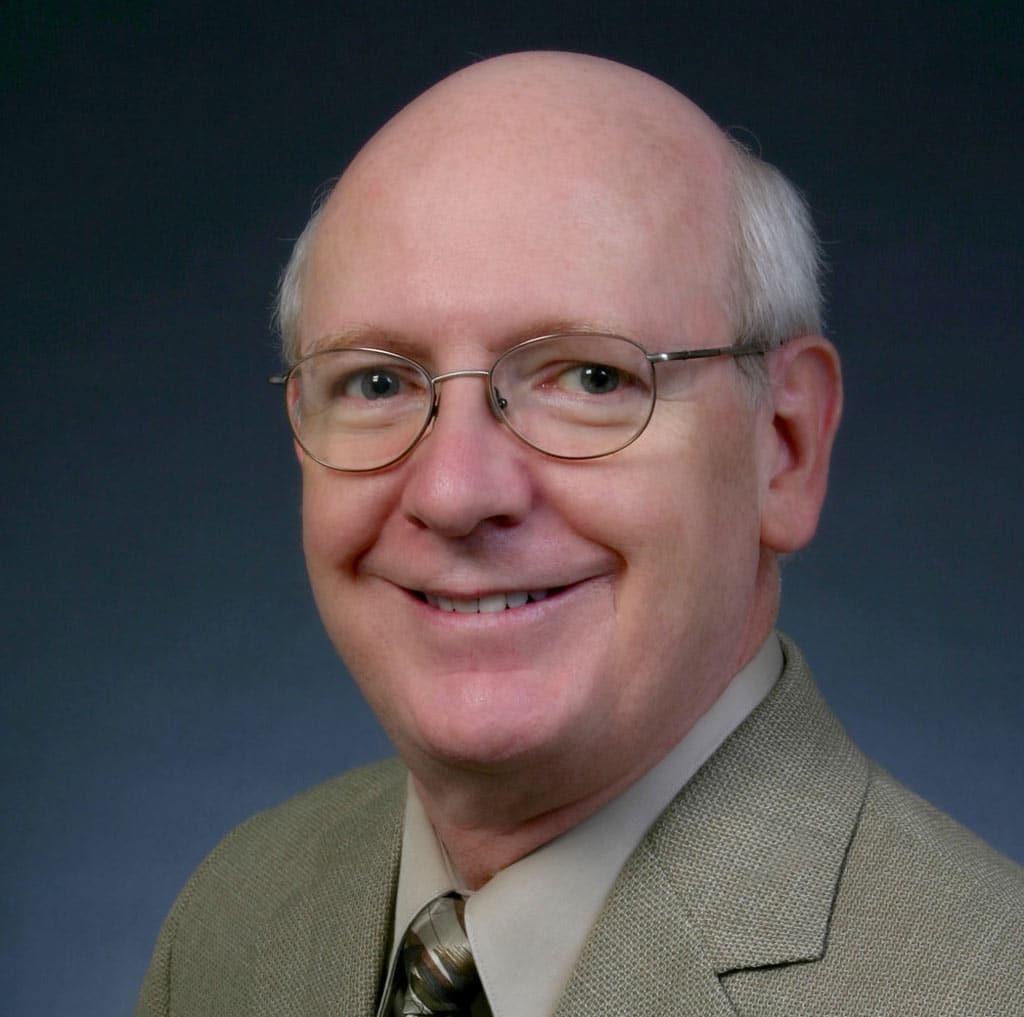Are you familiar with the difference between a maxillofacial surgeon and an oral & maxillofacial surgeon? While these two specialties may sound similar, they actually have distinct areas of expertise. In this article, we will unravel the distinction between the two, shedding light on the unique roles and responsibilities that each profession entails. Maxillofacial surgeons primarily focus on surgical procedures relating to the jaws and face, including corrective jaw surgery and facial reconstruction. On the other hand, oral & maxillofacial surgeons are trained in a broader range of procedures, encompassing not only the jaws and face but also the mouth and teeth. They are skilled in performing complex dental surgeries, such as wisdom teeth extractions and dental implant placements. By understanding the nuances between these two specialties, you will be better equipped to make informed decisions regarding your dental and facial healthcare needs. So, let’s dive into the world of maxillofacial surgery and discover the differences that set these two professions apart.
Understanding the role of a maxillofacial surgeon
Maxillofacial surgeons are highly skilled professionals who specialize in surgical procedures involving the jaws and face. Their primary focus is on correcting both functional and aesthetic issues that affect these areas. Maxillofacial surgeons play a crucial role in the treatment of conditions such as misaligned jaws, facial trauma, and congenital abnormalities. They work closely with other healthcare professionals, including orthodontists and plastic surgeons, to provide comprehensive care to their patients.
Maxillofacial surgeons undergo extensive training to acquire the necessary skills and knowledge to perform complex surgical procedures. They typically complete a bachelor’s degree in medicine or dentistry before pursuing a specialization in maxillofacial surgery. This comprehensive education equips them with a deep understanding of the anatomy, physiology, and pathology of the face and jaws. With their expertise, maxillofacial surgeons can diagnose and treat a wide range of conditions, improving both the function and appearance of their patients’ faces.
One of the most common procedures performed by maxillofacial surgeons is corrective jaw surgery, also known as orthognathic surgery. This procedure is used to correct misaligned jaws, which can cause difficulties with biting, chewing, and speaking. By repositioning the jaws, maxillofacial surgeons can improve the overall function and balance of the face. In addition to corrective jaw surgery, maxillofacial surgeons also perform facial reconstruction procedures, such as bone grafting and facial implants, to restore the appearance and functionality of the face after trauma or surgery.
Exploring the field of oral and maxillofacial surgery
While maxillofacial surgeons focus primarily on the jaws and face, oral & maxillofacial surgeons have a broader scope of practice that includes the mouth and teeth. These specialists are experts in both dental and surgical procedures, making them uniquely qualified to address a wide range of oral and maxillofacial conditions. In addition to surgical procedures involving the jaws and face, oral & maxillofacial surgeons also perform dental surgeries, such as wisdom tooth extractions and dental implant placements.
To become an oral & maxillofacial surgeon, individuals must complete a rigorous educational and training program. This typically involves obtaining a dental degree followed by specialized training in oral and maxillofacial surgery. This comprehensive training equips oral & maxillofacial surgeons with the knowledge and skills necessary to perform complex dental surgeries, manage oral diseases, and treat facial trauma. They are well-versed in both the dental and medical aspects of their field, allowing them to provide comprehensive care to their patients.
One of the most common procedures performed by oral & maxillofacial surgeons is wisdom tooth extraction. Wisdom teeth, also known as third molars, often become impacted and can cause pain, infection, and other oral health issues. Oral & maxillofacial surgeons are skilled in safely removing these teeth, ensuring the best possible outcome for their patients. In addition to wisdom tooth extraction, oral & maxillofacial surgeons also specialize in dental implant placement, a procedure used to replace missing teeth with artificial tooth roots. This procedure requires precise surgical skills and a deep understanding of both dental and surgical principles.
Education and training requirements for maxillofacial surgeons
The path to becoming a maxillofacial surgeon is a challenging and rewarding journey that requires several years of education and training. Maxillofacial surgeons typically begin their journey by completing a bachelor’s degree in medicine or dentistry. This foundational education provides them with a strong understanding of the basic principles of healthcare and prepares them for the specialized training that lies ahead.
After completing their bachelor’s degree, aspiring maxillofacial surgeons must pursue further specialization in maxillofacial surgery. This involves completing a residency program, which typically lasts for several years. During this time, residents gain hands-on experience in a variety of surgical procedures, honing their skills under the guidance of experienced maxillofacial surgeons. They also participate in academic activities, such as research and case presentations, to further enhance their knowledge and understanding of the field.
In addition to their residency training, maxillofacial surgeons may choose to pursue further specialization through fellowship programs. Fellowships provide additional training in specific areas of maxillofacial surgery, allowing surgeons to develop expertise in specialized procedures or subspecialties. These programs offer a unique opportunity for maxillofacial surgeons to refine their skills and stay up-to-date with the latest advancements in the field.
The scope of practice for maxillofacial surgeons
Maxillofacial surgeons have a diverse scope of practice that encompasses both surgical and non-surgical interventions. Their primary focus is on surgical procedures involving the jaws and face, but they also provide non-surgical treatments and interventions when appropriate. This comprehensive approach allows maxillofacial surgeons to address a wide range of conditions and provide holistic care to their patients.
Some of the common procedures performed by maxillofacial surgeons include corrective jaw surgery, facial reconstruction, bone grafting, and facial implants. These procedures are used to correct functional and aesthetic issues that affect the jaws and face. Maxillofacial surgeons also play a crucial role in the management of facial trauma, providing immediate surgical interventions and long-term reconstruction when necessary.
In addition to surgical procedures, maxillofacial surgeons also provide non-surgical treatments for certain conditions. For example, they may prescribe medication to manage pain or infection, provide orthodontic treatments to correct dental and skeletal abnormalities, or offer counseling and support to patients with facial deformities. This comprehensive approach allows maxillofacial surgeons to address the unique needs of each patient and tailor their treatment plan accordingly.
Common procedures performed by maxillofacial surgeons
Maxillofacial surgeons are skilled in performing a wide range of procedures that are aimed at improving the function and appearance of the jaws and face. Some of the most common procedures performed by maxillofacial surgeons include corrective jaw surgery, facial reconstruction, bone grafting, and facial implants.
Corrective jaw surgery, also known as orthognathic surgery, is a procedure used to correct misaligned jaws. This condition, known as malocclusion, can cause difficulties with biting, chewing, and speaking. By repositioning the jaws, maxillofacial surgeons can improve the overall function and balance of the face. This procedure is often performed in collaboration with orthodontists, who help to align the teeth before and after the surgery.
Facial reconstruction procedures are another area of expertise for maxillofacial surgeons. These procedures are used to restore the appearance and functionality of the face after trauma or surgery. Facial reconstruction may involve bone grafting, which is the process of transplanting bone from one part of the body to another, or the use of facial implants to enhance or restore facial contours. Maxillofacial surgeons work closely with plastic surgeons to ensure the best possible outcome for their patients.
Bone grafting is a procedure used to restore bone volume and density in areas of the jaw or face where bone loss has occurred. This procedure is commonly performed in preparation for dental implant placement, as it provides a stable foundation for the implants. Maxillofacial surgeons use various techniques and materials, such as autografts (bone from the patient’s own body) or allografts (bone from a donor), to perform bone grafting procedures.
Facial implants are another common procedure performed by maxillofacial surgeons. These implants are used to enhance or restore facial contours, providing a more balanced and aesthetically pleasing appearance. Facial implants are often made of biocompatible materials, such as silicone or polyethylene, and are customized to fit each patient’s unique facial structure. Maxillofacial surgeons carefully plan and execute these procedures to ensure natural-looking results that complement the patient’s overall facial features.
Differentiating between oral surgeons and maxillofacial surgeons
The distinction between oral surgeons and maxillofacial surgeons can sometimes be confusing, as there is some overlap in their areas of expertise. However, there are key differences that set these two specialties apart. Maxillofacial surgeons primarily focus on surgical procedures involving the jaws and face, while oral surgeons have a broader scope of practice that includes the mouth and teeth.
Oral surgeons, also known as oral and maxillofacial surgeons, are experts in both dental and surgical procedures. They are trained to diagnose and treat a wide range of oral and maxillofacial conditions, including dental extractions, dental implant placements, and management of oral diseases. Oral surgeons often work closely with other dental specialists, such as orthodontists and prosthodontists, to provide comprehensive care to their patients.
Maxillofacial surgeons, on the other hand, specialize in surgical procedures involving the jaws and face. While their scope of practice may overlap with that of oral surgeons, maxillofacial surgeons have a narrower focus on surgical interventions. They are skilled in performing complex procedures, such as corrective jaw surgery and facial reconstruction, that require in-depth knowledge of the anatomy and function of the face.
When it comes to education and training, oral surgeons and maxillofacial surgeons follow similar paths. Both specialties require completion of a dental degree followed by specialized training in oral and maxillofacial surgery. However, maxillofacial surgeons may choose to pursue additional specialization through fellowship programs, allowing them to develop expertise in specific areas of maxillofacial surgery.
When to consult a maxillofacial surgeon vs. an oral surgeon
Knowing when to consult a maxillofacial surgeon versus an oral surgeon can be crucial in receiving the most appropriate care for your specific needs. If you are experiencing issues related to your jaws or face, such as misaligned jaws, facial trauma, or congenital abnormalities, it is advisable to consult a maxillofacial surgeon. These specialists have the expertise and skills necessary to diagnose and treat conditions affecting the jaws and face, providing comprehensive care to improve both function and appearance.
On the other hand, if your concerns are primarily related to your mouth or teeth, it is best to consult an oral surgeon. Oral surgeons are experts in dental and surgical procedures, making them the ideal choice for conditions such as impacted wisdom teeth, dental implant placements, and management of oral diseases. They work closely with other dental specialists to ensure that you receive the most appropriate and comprehensive care for your oral health needs.
In some cases, your dental or facial condition may require the expertise of both a maxillofacial surgeon and an oral surgeon. In such situations, a collaborative approach may be necessary to provide the best possible outcome. Your primary dentist or healthcare provider can help determine the most appropriate course of action and refer you to the appropriate specialists as needed.
Choosing the right specialist for your specific needs
Choosing the right specialist for your dental and facial healthcare needs is essential to ensure that you receive the best possible care. When making this decision, consider the specific expertise and qualifications of the specialist, as well as their experience in treating conditions similar to yours. It is also important to consider the personal rapport and trust you feel with the specialist, as this can greatly impact your overall experience and satisfaction with the treatment.
When seeking a maxillofacial surgeon or an oral surgeon, it is advisable to ask for recommendations from your primary dentist or healthcare provider. They can provide valuable insights and referrals based on their knowledge of your specific needs and the expertise of the specialists in your area. Additionally, you can conduct your own research to learn more about the qualifications, experience, and patient satisfaction of potential specialists.
During your initial consultation with a maxillofacial surgeon or an oral surgeon, be sure to ask questions about their approach to treatment, the expected outcomes, and any potential risks or complications associated with the procedures. This will help you make an informed decision and ensure that you are comfortable and confident in the specialist’s abilities.
Conclusion and final thoughts
In conclusion, understanding the distinction between a maxillofacial surgeon and an oral & maxillofacial surgeon is crucial in making informed decisions regarding your dental and facial healthcare needs. Maxillofacial surgeons primarily focus on surgical procedures involving the jaws and face, while oral & maxillofacial surgeons have a broader scope of practice that includes the mouth and teeth. Both specialties require extensive education and training, equipping these specialists with the skills and knowledge necessary to provide comprehensive care.
By consulting the appropriate specialist for your specific needs, you can ensure that you receive the best possible care and achieve optimal outcomes. Whether you require corrective jaw surgery, facial reconstruction, dental extractions, or dental implant placements, there is a specialist who can provide the expertise and personalized care you need.
Remember to consult your primary dentist or healthcare provider for recommendations and referrals to trusted specialists in your area. By working closely with these professionals and understanding the nuances between maxillofacial surgeons and oral surgeons, you can embark on your dental and facial healthcare journey with confidence and peace of mind.






